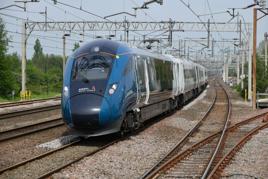More detail and reaction on what to expect from the government’s rail reform has emerged. The King set out planned reform to the railways in the state opening of parliament yesterday (July 17) with many of Labour’s manifesto pledges for it included.
RAIL understands that there will be two bills brought forward for legislation. The Passenger Railway Services Bill will be aimed at bringing rail services back into public ownership which was one of the Labour party’s election manifesto pledges. Currently four of the 14 franchises awarded by Department for Transport (DfT) are operated by the department with ScotRail and the Caledonian Sleeper operated by the Scottish Government separately. This is also the case for Transport for Wales, which the Welsh government has operated since 2021.
The remaining franchises which include the beleaguered Avanti West Coast will come under government ownership once their respective contracts expire. In the case of Avanti West Coast, this could be as soon as 2026. However, this is not the case for some others, with CrossCountry’s contract expiring at its earliest in October 2027.
The Government will have an immediate decision to make in September when Greater Anglia and West Midlands Train’s contract are both expiring but the government has not as of yet, given an indication on whether the contracts will be renewed in the short-term.
It is also pushing forward with its plans for establishing Great British Railways. The Railways Bill will see sweeping change to how the railways are governed. The bill will include legislation for ensuring track and train are brought back together under a single authority 3ith planning also brought forward on a “whole system basis”.
A new passenger watchdog will also be established. RAIL understands the Passenger Standards Authority will be independent from GBR and will be responsible for ensuring standards are maintained. The bill will also establish GBR’s role in ticketing reform, which the government is keen to make simpler and help drive better innovation.
Rail freight will also fall under GBR, with the new bill setting out a statutory duty on GBR to promote rail freight as well as setting an overall growth target similar to the previous governments. However, in an immediate blow to the sector, it is unlikely that target or any safeguards for the sector will be set until after the legislation is passed.
The government also clarified its position on HS2, with no plans currently to revive Phase 2. Instead, the government will be continuing to repurpose the Phase 2b bill for “connecting regional centres in the north”. This is likely to include the proposed new Liverpool-Manchester line which is being planned by the devolved authorities of both cities.
















Login to comment
Comments
No comments have been made yet.